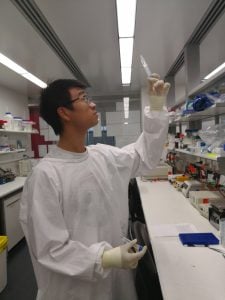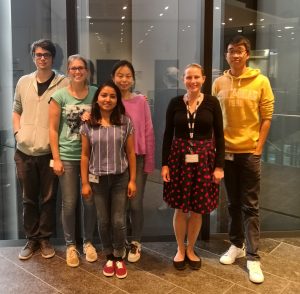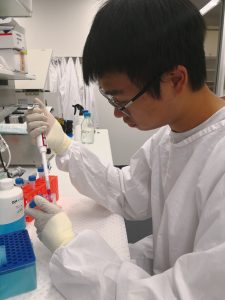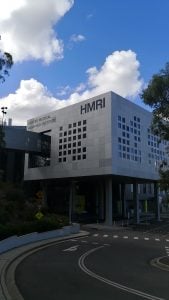[fusion_builder_container hundred_percent=”no” equal_height_columns=”no” menu_anchor=”” hide_on_mobile=”small-visibility,medium-visibility,large-visibility” class=”” id=”” background_color=”” background_image=”” background_position=”center center” background_repeat=”no-repeat” fade=”no” background_parallax=”none” parallax_speed=”0.3″ video_mp4=”” video_webm=”” video_ogv=”” video_url=”” video_aspect_ratio=”16:9″ video_loop=”yes” video_mute=”yes” overlay_color=”” overlay_opacity=”0.5″ video_preview_image=”” border_size=”” border_color=”” border_style=”solid” padding_top=”” padding_bottom=”” padding_left=”” padding_right=””][fusion_builder_row][fusion_builder_column type=”1_1″ layout=”1_1″ background_position=”left top” background_color=”” border_size=”” border_color=”” border_style=”solid” border_position=”all” spacing=”yes” background_image=”” background_repeat=”no-repeat” padding=”” margin_top=”0px” margin_bottom=”0px” class=”” id=”” animation_type=”” animation_speed=”0.3″ animation_direction=”left” hide_on_mobile=”small-visibility,medium-visibility,large-visibility” center_content=”no” last=”no” min_height=”” hover_type=”none” link=””][fusion_text] 12 March 2018 – 11 May 2018 – Wong Zheng Feng from the IMU Biomedical Science cohort of BM 1/15 completed his 9-week Phase I internship at Hunter Medical Research Institute (HMRI), Newcastle, New South Wales, Australia. HMRI is a research institute that has a partnership with the University of Newcastle (UoN) and Hunter New England Local Health District which is collaborating with other leading institutes and industries to help fast-track the provision of new and better health solutions. He decided to do his internship at HMRI mainly because of his interest in cancer tumour suppressor protein – p53 which is the research major of his supervisor – Dr Kelly-Avery Kiejda. Zheng Feng relates his experience here.
“I did my 9-week placement in the Medical Genetics Department under the supervision of Dr Kelly-Avery Kiejda and Dr Brianna Morten. Dr Kelly-Avery Kiejda has been working on this tumour suppression protein – p53 for the past 7 years with the hopes of improving diagnosis and treatment for breast cancer sufferers by identifying new biomarkers for the disease. Breast cancer is the most common malignancy in women. The tumour suppression of p53 is essential for control of normal breast growth and its mutation in breast cancer is associated with poor prognosis. However, inactivation of p53 by mutation occurs in fewer breast cancers (~25%) than expected.  Previous studies of Dr Kelly-Avery Kiejda’s research team have indicated that the p53 isoforms – ∆40p53 was the most highly expressed isoform in breast cancer where it was associated with an aggressive breast cancer subtype – triple negative and that is associated with the worst outcome. Furthermore, fresh frozen breast cancers highly expressing ∆40p53 and breast cancer cell lines exogenously overexpressing ∆40p53 have significantly increased expression of stem cell markers. My main role is to examine the expression and localisation of ∆40p53 in breast cancer cells using immunohistochemistry (IHC) methods, examine the expression and localisation markers and correlate this with ∆40p53 and validate the IHC results using western blotting. The main activity I perform on a daily basis is to maintain and monitor the two cell lines I subcultured (MCF-7 cells and ZR-75 cells) including passaging and changing of growth medium. Furthermore, I have the chance to tag along or assist other researchers, post doctorates or PhD students on a variety of various research process including the usage of a droplet PCR machine; transient transfection of MCF-7 cells; histopathology laboratory work including fixation of tissues, microtome and staining of histology slides, etc.
Previous studies of Dr Kelly-Avery Kiejda’s research team have indicated that the p53 isoforms – ∆40p53 was the most highly expressed isoform in breast cancer where it was associated with an aggressive breast cancer subtype – triple negative and that is associated with the worst outcome. Furthermore, fresh frozen breast cancers highly expressing ∆40p53 and breast cancer cell lines exogenously overexpressing ∆40p53 have significantly increased expression of stem cell markers. My main role is to examine the expression and localisation of ∆40p53 in breast cancer cells using immunohistochemistry (IHC) methods, examine the expression and localisation markers and correlate this with ∆40p53 and validate the IHC results using western blotting. The main activity I perform on a daily basis is to maintain and monitor the two cell lines I subcultured (MCF-7 cells and ZR-75 cells) including passaging and changing of growth medium. Furthermore, I have the chance to tag along or assist other researchers, post doctorates or PhD students on a variety of various research process including the usage of a droplet PCR machine; transient transfection of MCF-7 cells; histopathology laboratory work including fixation of tissues, microtome and staining of histology slides, etc.
Throughout the process, I am able to learn a lot about the flaws or bad habits in my practical skills and am able to improve them or to master them especially the general laboratory technique including cell culture, microscopy, and micro-pipetting. Dr Kelly-Avery Kiejda and Dr Brianna Morten has been really nice to me, guiding me through the experiments, ensuring that I understand every single step that I am doing and patiently answering all my doubts regarding the research project during the weekly lab meetings and monthly department meetings. They also provide me some constructive comments and suggestion on my future career path.
Even though Dr Kelly-Avery Kiejda can be really busy at times, she will always be there for me when I met any form of difficulties in my research project or during my experiments. Dr Kelly-Avery Kiejda and Dr Brianna Morten also been very kind to me by inviting me to join them at the Australian Society for Medical Research Trivia Night to help me make more friends and to ensure I had fun during my stay in Newcastle.  Apart from this, I also have a fantastic opportunity to attend a 2 days 1 night medical research symposium – the 3rd Breast and Prostate Cancer Symposium in Garvan Medical Research Institute in Sydney, New South Wales, Australia with Dr Kelly-Avery Kiejda, Dr Brianna Morten and a few PhD students under the supervision of Dr Kelly-Avery Kiejda. Speakers at the symposium are from various famous cancer research institute in Australia and the world including the oldest medical research institute in Australia – Walter and Eliza Medical Research Institute; Dana Farber Cancer Institute; University of Cambridge; etc. I learnt a lot and am able to have more insight about the cancer research field throughout the conference. Besides, I also learnt the importance and inculcate the appreciation on evidence-based research.
Apart from this, I also have a fantastic opportunity to attend a 2 days 1 night medical research symposium – the 3rd Breast and Prostate Cancer Symposium in Garvan Medical Research Institute in Sydney, New South Wales, Australia with Dr Kelly-Avery Kiejda, Dr Brianna Morten and a few PhD students under the supervision of Dr Kelly-Avery Kiejda. Speakers at the symposium are from various famous cancer research institute in Australia and the world including the oldest medical research institute in Australia – Walter and Eliza Medical Research Institute; Dana Farber Cancer Institute; University of Cambridge; etc. I learnt a lot and am able to have more insight about the cancer research field throughout the conference. Besides, I also learnt the importance and inculcate the appreciation on evidence-based research.  I took the opportunity to explore Newcastle in the evenings and during the weekends. There are not many tourist attractions in Newcastle but they do have a lot of breathtaking and amazing beaches like Merewether beach, Newcastle beach, Nobby’s beach, etc. I also spent some of my time travelling to Sydney as Sydney is just about a 3-hour train ride from Newcastle and to Brisbane and Gatton, Queensland during the long Easter break. The windy and chilly weather in Australia make it pretty fascinating and amazing to travel around Australia. The weather is not as hot despite of the sunny sun. To be very honest, this is the first time I am staying outside from my home for such a long duration of time; therefore, adapting to the lifestyle in Newcastle, stepping out from my comfort zone for 11 weeks is not a fairly easy task. The food, culture, lifestyle, accent and people is so different from my home country. Shopping malls close averagely at 4p
I took the opportunity to explore Newcastle in the evenings and during the weekends. There are not many tourist attractions in Newcastle but they do have a lot of breathtaking and amazing beaches like Merewether beach, Newcastle beach, Nobby’s beach, etc. I also spent some of my time travelling to Sydney as Sydney is just about a 3-hour train ride from Newcastle and to Brisbane and Gatton, Queensland during the long Easter break. The windy and chilly weather in Australia make it pretty fascinating and amazing to travel around Australia. The weather is not as hot despite of the sunny sun. To be very honest, this is the first time I am staying outside from my home for such a long duration of time; therefore, adapting to the lifestyle in Newcastle, stepping out from my comfort zone for 11 weeks is not a fairly easy task. The food, culture, lifestyle, accent and people is so different from my home country. Shopping malls close averagely at 4p
m in the evening. The street is pretty much empty when the clock hit 8pm. Stepping out from your comfort zone is never easy, yet a very big challenge but what matters is how you deal with it and adapt it. I start from arriving at Newcastle one week early in order to adapt the difference in time zone and the environment before I start my internship. In my experience, making friends with the locals are far more useful than googling to get information on travelling spots and delicious restaurants, sometimes, you may even earn yourself a free ride to the location too when you get lucky. I had a very invaluable and eye opening experience here in HMRI, I will take with me what I learned here in HMRI to continue my Phase II internship in Hospital Sultanah Nora Ismail (HSNI), Batu Pahat, Johor.” [/fusion_text][/fusion_builder_column][/fusion_builder_row][/fusion_builder_container]


